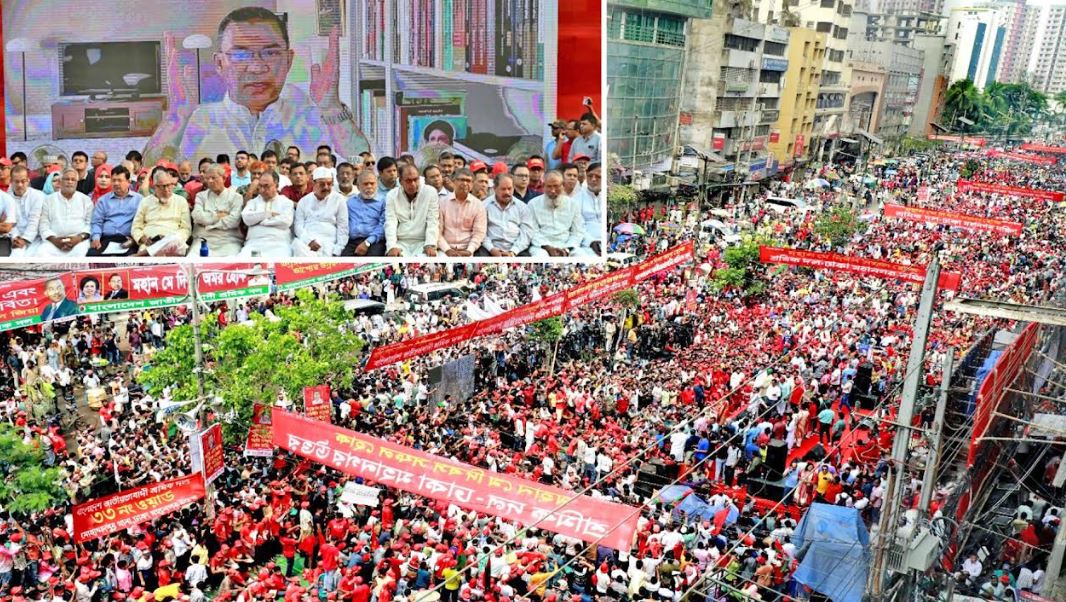Since August 5—the day marking the fall of Sheikh Hasina—grassroots-level infighting within the BNP has become increasingly visible. The names of party leaders and activists are frequently making headlines, not for political activism, but for their involvement in deadly clashes and internal violence, according to a report of BBC Bangla.
In April alone, at least seven BNP activists were reportedly killed in factional disputes. Since last August, media reports suggest the death toll from internal party violence has exceeded 50.
Senior BNP leaders acknowledge the problem. They claim that disciplinary action taken by the party has helped bring the violence under control. But available data tells a different story, indicating that grassroots-level confrontations are only rising with time, said the report.
Analysts point to economic interests and turf wars as major drivers behind the violence. They also warn that such incidents are likely to increase as the next national election approaches.
“I went for the party and got shot—yet no one from the party came to help,” that’s what Md. Raihan Kabir, son of slain BNP activist Lavlu Mia, told BBC Bangla. Lavlu was killed during a factional clash in Badarganj, Rangpur, on April 5. The conflict broke out during a human chain protest over local dominance and the beating of a businessman.
Raihan has filed a case naming 12 individuals and accusing 100–150 others. According to him, the suspects have already secured anticipatory bail “with the power of money.”
“My father was a dedicated BNP worker. He went to jail in several arson and sabotage cases. We both took bullets for the party,” he said. “Now the party leaders are silent. If this is politics, I urge the people of this country to stay away from it.”
Although six local BNP leaders were expelled following the incident, Raihan expressed frustration that those responsible have not faced justice.
Just a week later, on April 11, another BNP-linked killing took place. Rakib Molla, a Krishak Dal leader, was hacked to death near his home in the Dhirashram area of Gazipur. The motive: rivalry over local cable and internet businesses.
His family alleges that those involved in the murder are shielded by BNP’s political network.
Rakib’s mother Rubina Akter Seema told BBC Bangla: “Rakib could’ve gone far within the BNP. Others couldn’t accept that. That’s why he was killed. Some BNP members don’t even want my case to go forward. They say if the accused are BNP men, the charges will be watered down. So does that mean BNP men can commit crimes and get away with it?”
58 dead in BNP infighting over eight months
According to the human rights group Ain o Salish Kendra (ASK), 36 people died in political violence between January and March this year. Of those, 26 deaths stemmed from BNP’s internal conflicts.
Between August and March, ASK data shows 76 political deaths in total, with 58 linked specifically to intra-party BNP violence.
When questioned, senior BNP Joint Secretary General Ruhul Kabir Rizvi admitted to internal strife. “We’re not saying there is no violence. But the key issue is whether it’s being encouraged. It is not,” he told BBC Bangla.
“Those involved have been expelled, their posts suspended, show-caused. From the national to grassroots level, no one is being spared,” Rizvi said.
He added that the party has dissolved and restructured several district and sub-district committees based on proof of involvement in violent acts, affecting 3,000 to 4,000 party members so far.
Rizvi also framed the unrest as a backlash to prolonged political oppression.
“BNP, as a major political party, endured 15–16 years of repression. Our people were evicted from their areas and have only recently returned. Some reaction is natural under such circumstances.”
“But because we’ve taken corrective measures, the intensity has reduced significantly. Compared to post-August levels, things have calmed down a lot,” he added.


